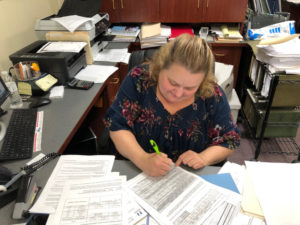Protect Yourself From Identity Theft
Stop Cyber Criminals From Stealing Your Personal Information

Identity theft and protecting our computer data are growing problems in the United States. Aggressive hacking operations backed by countries hostile to the United States are encouraging theft of our information for monetary gain . What can we do to protect ourselves? At Peter B. Crilly & Associates, we care about helping our customers. A few simple precautions, can reduce the chance of your accounts being hacked and personal information stolen.
- First and foremost, NEVER click on a link that arrives in your email unless it comes from a trusted source, A common trick, is for a virus to invade someone’s email list unbeknowst to them and send out emails claiming to have a personal message or important information. Just click on the link, the email says. Wait and use caution. The email is from one of your friends, supposedly, but did they actually send it? If you think they might have, send your friend an email and ask if they recently sent you a link to something. Nine times out of ten they did not . Your precautions will help halt the spread of the virus, by informing them to notify their email list thus protecting hundreds of other potential victims.
- Set up a seperate email for transactions and purchases. Reduce junk mail and keep you personal information segregated to add another layer of protection.
- Do not store your credit card information on websites. Yes it is fast and easy, but if their website is hacked your personal infomration is available.
- Only use secure internet connections. Require a password for your home wifi and do not access your bank or shop onlne in public places.
- Do not post your personal information on social media sites. Your phone number, address, full birth date and year, names of your children and even your birth place are useful material for identity thieves. Consider using a nickname for your Facebook page, if you have one, to make it more difficult for Identity thieves and stalkers.
- And finally, create unique passwords that are strong— meaning they are at least nine characters long and include one number, one capital letter, and one symbol. Have several passwords and keep track of them by writing them down in a small notebook for safekeeping, in case you forget. A nonsense sentence from a favorite book or movie, such as “1Scarecrowhas nobrains?” can make the password easier to remember. Change your passwords every six months.
At Peter B. Crilly & Associates, we care about protecting our customers. For other helpful tips on insurance protection, read some of our other blog posts. To comparison shop on insurance rates, call 410-571-1771






